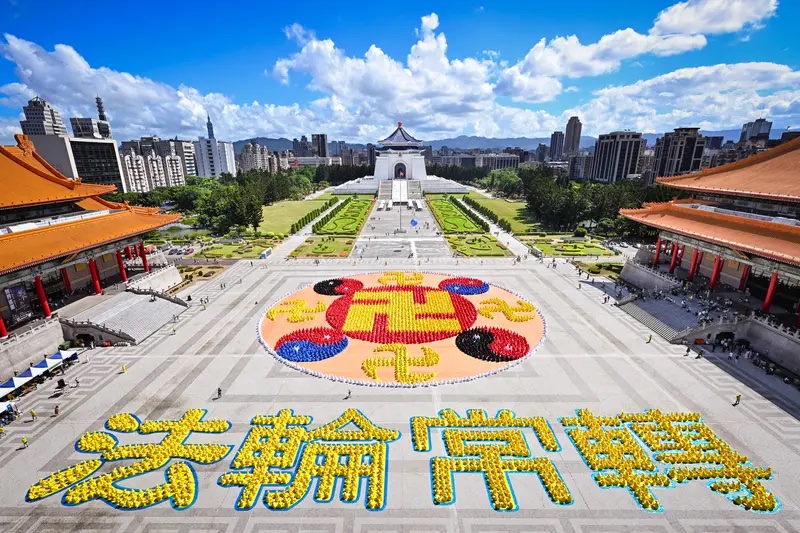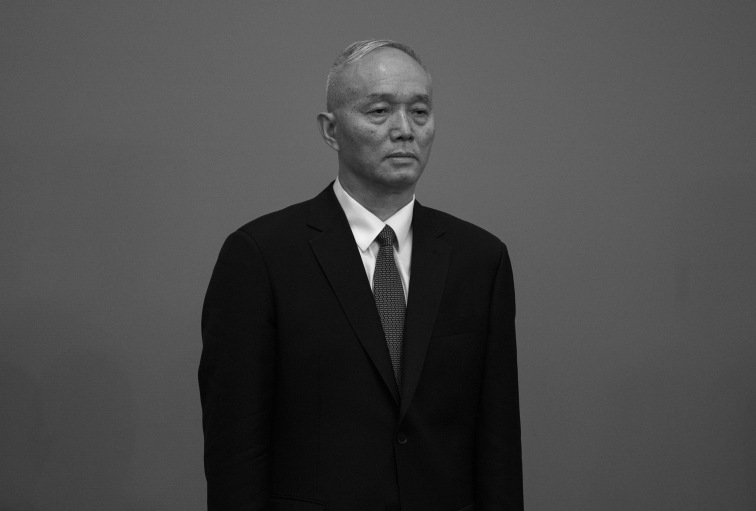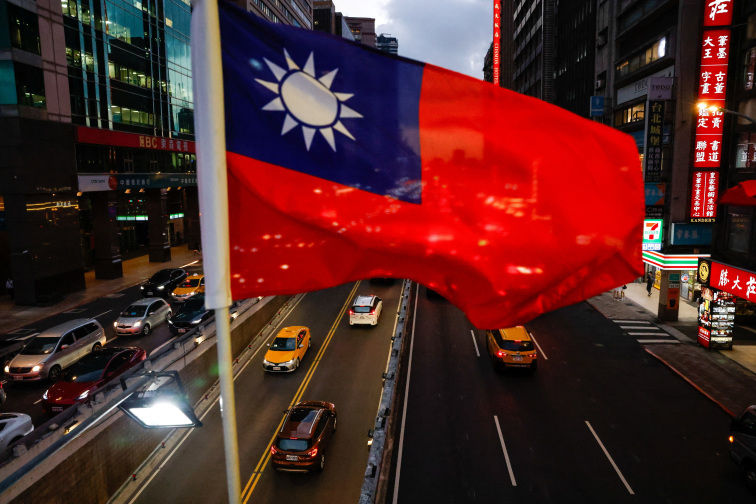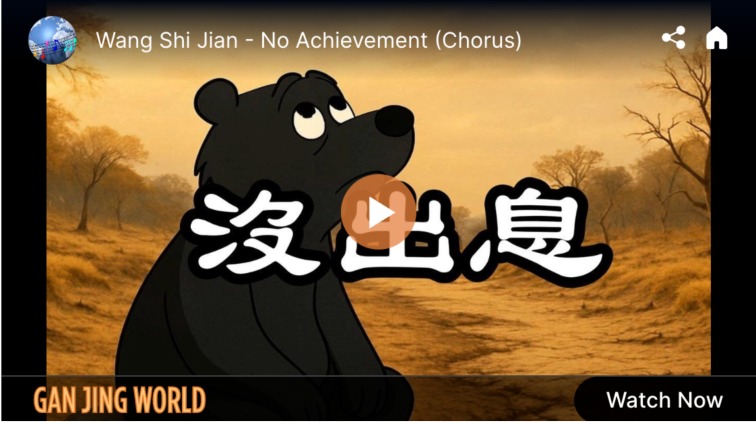Cai Qi and Wang Xiaohong serve as Xi Jinping's gatekeepers. (Composite image)
[People News] The 2025 Asia-Pacific Economic Cooperation (APEC) Leaders’ Summit concluded in South Korea on November 1. During the meeting, Taiwan’s APEC representative, Lin Hsin-yi, performed outstandingly—first meeting with U.S. Treasury Secretary Besant for about 40 minutes, then with Japanese Prime Minister Sanae Takaichi. At the leaders’ photo session, Lin Hsin-yi and Xi Jinping had zero interaction. Although Xi treated Lin coldly, he notably did not mention Taiwan when talking with Trump—a signal that stunned the world, breaking the usual precedent in U.S.–China leader summits. The likely reason is that earlier, the U.S. announced that Taiwan’s status remains undetermined. Seeking to ease tensions with Trump, Xi intentionally lowered his posture.
1. The U.S. Declares Taiwan’s Status Undetermined—Divergent Reactions Across the Spectrum
On September 12, the American Institute in Taiwan (AIT)—the de facto U.S. embassy in Taiwan—criticized Beijing for distorting the Cairo Declaration and Potsdam Proclamation, emphasizing that those WWII documents did not determine Taiwan’s final political status.
Reactions within Taiwan were sharply divided. The Green Camp (pro-independence) welcomed the statement, believing it gave new room for Taiwan’s independence movement; the Blue Camp (pro-unification) condemned it as undermining the Republic of China’s sovereign legitimacy.
This reveals Taiwan’s deep internal division—one faction strongly calling for reunification, another passionately for independence. Such division has hindered Xi Jinping’s push for military unification.
Where did the Taiwan issue originate?
In 1945, after Japan surrendered under the Cairo Declaration and Potsdam Proclamation, it “renounced sovereignty over Taiwan,” but the documents did not specify to whom sovereignty was transferred. At that time, two governments existed in mainland China—the Kuomintang-led Republic of China and the Communist-led Soviet-style regime.
In the 1951 Treaty of San Francisco, Japan again renounced Taiwan without designating a recipient. The Communist regime, engaged in the Korean War, did not attend the signing. The U.S. supported the ROC’s participation, but Britain strongly objected.
In 1971, UN Resolution 2758 restored China’s seat but did not discuss Taiwan’s status, nor did it explicitly state that the PRC represented “all China”—it merely said the “People’s Republic of China” represented “China.” In reality, both the CCP regime and the ROC government continued to exist.
2. The Chen Zhi Case Shows AI Technology May Reshape the Global Order
Joseph S. Nye Jr., professor of political science at Harvard, argues that “in the era of globalization, cultural appeal and institutional legitimacy shape global order more than military power.” In his 2023 paper Power and Interdependence in the Digital Age: From Territorial Sovereignty to Algorithmic Sovereignty, Nye contends that the rise of AI is redefining “sovereignty” itself and transforming the future of nation-states.
He argues that AI is reshaping power structures—redistributing informational, economic, and cognitive power—and thus challenging the Westphalian state system based on territorial borders.
A recent example illustrates this:
Chen Zhi of the Prince Group was indicted by the U.S., which confiscated $15 billion worth of Bitcoin from him. Leaked reports claim Chen was a financial proxy (“white glove”) for Xi’s family. Trump’s move effectively used information technology to seize control of Xi’s family’s financial lifeline.
Commentators observed that since the U.S. indictment and asset seizure, Xi Jinping has shown unusual restraint and passivity in his dealings with Trump.
This demonstrates that national sovereignty competition is evolving into algorithmic sovereignty competition. The action against Chen was a precise strike on the CCP’s financial core—forcing compliance without warfare.
Once key state agents fall under AI surveillance, rulers’ assets and personal safety can no longer be guaranteed. Traditional sanctions relied on military or geographic blockades; now they use blockchain tracing, AI financial analytics, and cryptocurrency freezes as new weapons.
Thus, before Xi dares to move on Taiwan, he must first consider whether he himself is safe.
3. Taiwan Matters Less to Xi Now—Bigger Burdens Await
At the Xi–Trump summit, Xi likely had no energy left for Taiwan. His domestic power struggle with Zhang Youxia and the CIA-linked Rocket Force espionage scandal show the PLA’s lack of combat capability.
Over his 13-year rule, Xi has jailed political rivals under the guise of anti-corruption, but he and his family are also implicated in massive graft.
Exiled commentator Jiang Wangzheng revealed that Xi’s family accepted vast bribes in exchange for official promotions. For example, Zhejiang Party Secretary Wang Hao allegedly paid Peng Liyuan at least 800 million RMB to secure his position. Jiang also claimed that Hunan Party Secretary Shen Xiaoming is set to replace Wang Xiaohong as China’s next Minister of Public Security—despite being a pediatrician by training—because he funneled over 1 billion RMB to Xi’s family via overseas channels.
For Xi, the worst fear now is that Trump—through the Chen Zhi case—has signaled that he already knows where Xi’s wealth is hidden.
Meanwhile, Russia’s gradual failures in Ukraine and its economic collapse have led Russian society to blame Xi for the war.
Denis Volkov, writing in Gorbachev’s Journal, discussed this in “Neither Friend nor Enemy—But How to View China?” The Levada Center later republished the piece on December 12, 2024, titled “China’s Image in Russian Public Opinion.”
In 2015, when Xi attended Moscow’s Victory Day parade, Russians believed “as long as China stands with us, isolation is impossible.”
Surveys showed that in 2014, the proportion of Russians viewing China as friendly doubled—from 20 % to 40 %; positive views rose from 55 % to 77 %. By February 2022, after the war began, favorable opinions hit 92 %. Russians hoped China would replace the West as a source of technology, investment, and high-quality goods.
But lately, they’ve realized that Beijing merely exploits Russia as a source of cheap raw materials and a dumping ground for low-end goods, deeply hurting public sentiment. Russians now mock the CCP for having advanced weapons but lacking courage—and fear that if Russia loses in Ukraine, China might seize Russian land.
Political commentator Chen Pokong noted on his program that Russian websites are now filled with suspicion: that Xi Jinping dragged Putin into the Ukraine war. Reportedly, when Putin told Xi he planned to invade Ukraine, Xi promised to launch an attack on Taiwan to distract the U.S.—but never did—leaving Putin isolated.
In summary:
Xi Jinping faces multiple crises—the power struggle with Zhang Youxia, the Rocket Force CIA spy scandal, his family’s corruption, and now being blamed for Russia’s war. It’s uncertain which burden he will shoulder first. Compared to these, the Taiwan issue has become secondary—Taiwan, for now, is safe.
(First published by People News)











News magazine bootstrap themes!
I like this themes, fast loading and look profesional
Thank you Carlos!
You're welcome!
Please support me with give positive rating!
Yes Sure!